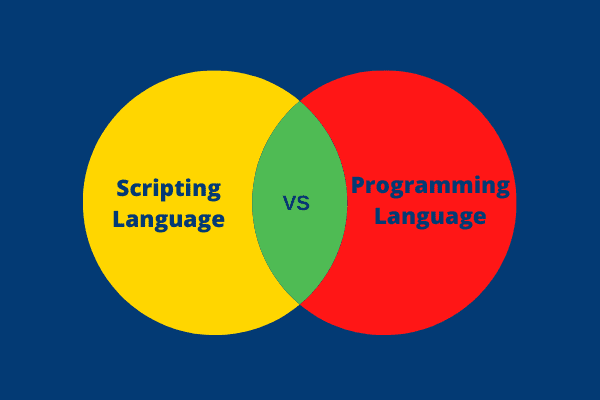

There are codified sets of instructions and programming languages that are used to develop different digital products and services. These can be used to process data and control devices efficiently.
A scripting language is a type of interpreted programming language that is used to write codes. These codes help automate tasks and add some unique as well as dynamic features to the web pages. This language also serves the purpose of connecting the tissue between different parts of the software system.
The scripting languages are designed to be flexible and simple with a focus on making common tasks easy to accomplish. The different types of scripting languages are Ruby, Perl, Python, JavaScript, and PHP. These are suitable for rapid web development and the generation of codes.
The two types of languages have different meanings. The primary difference between these two languages is that in the scripting language, the code is executed line by line and can be run as an executable file. The programmer can make changes to the code and even test it without needing to recompile the entire program.
On the other hand, programming languages have to be translated into the machine code and saved as executable files. These languages are more impactful and efficient than scripting languages. However, it can be a difficult task to learn this language. Programming language includes Java, C, and C++.
Scripting languages are typically utilized to carry out smaller tasks. On the contrary, programming languages are considered for big and complex software applications. They can be used for developing lower-level software, enterprise-level software, and operating systems.
Optimal scripting can be used for:
It helps in application development by creating everything from simple desktop applications to large-scale enterprises. It is also used to develop operating systems and low-level system components effectively. Optimal programming language can update the data and develop several database applications as well. This language is also responsible for building native applications for iOS and Android devices.
Scripting is an easier language to learn. It has fewer syntax rules and conventions. It makes it easier to accomplish common tasks using less code. Programming could be a more difficult process; you may need some more time to understand the language.
Scripting is a technical form of programming and it makes it easier for the user to quickly see results. It is a suitable option for exploratory programming for users. It is designed to be simple and allows the user to perform common tasks in a straightforward manner. It is flexible and has an adaptable code which makes it far easier to work with different data formats.
Programming languages have high optimal performance and are efficiently used for large-scale software systems. The language helps in catching hold of errors, making it a reliable and robust option for effective business operations. It is designed to handle the demands of large business operations by handling their efficient memory management and optimization of data structure.
Get benefited from the best IT training courses including PHP training courses, digital marketing courses, software testing training courses, and many more courses offered at VTechLabs.
back to blog